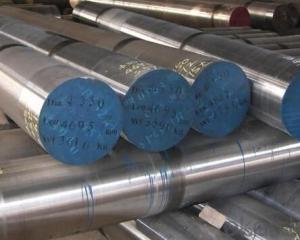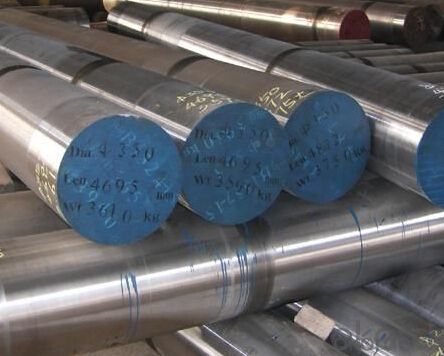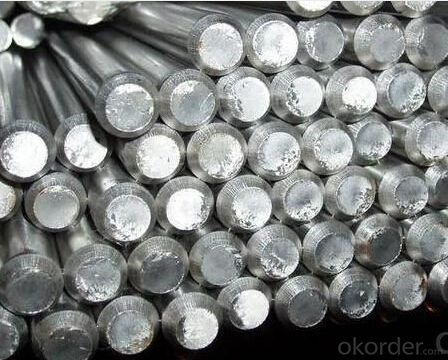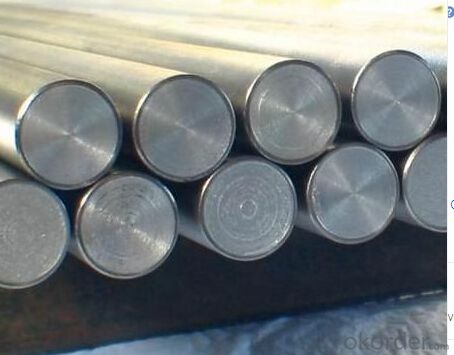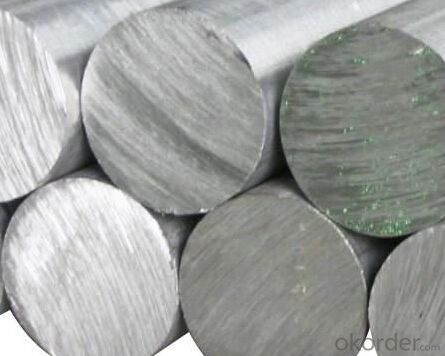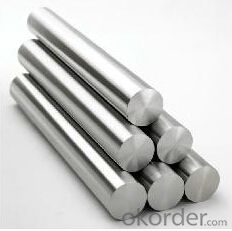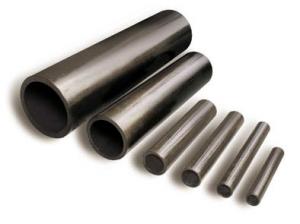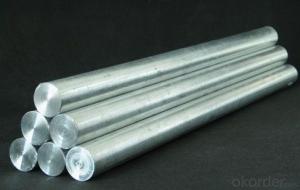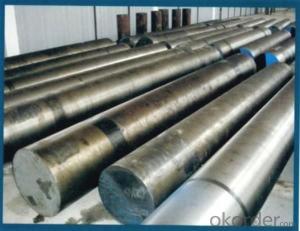High Quality Stainless Alloy Bearing Steel
- Loading Port:
- China Main Port
- Payment Terms:
- TT or LC
- Min Order Qty:
- -
- Supply Capability:
- -
OKorder Service Pledge
OKorder Financial Service
You Might Also Like
Product Description:
OKorder is offering High Quality Stainless Alloy Bearing Steel at great prices with worldwide shipping. Our supplier is a world-class manufacturer of steel, with our products utilized the world over. OKorder annually supplies products to European, North American and Asian markets. We provide quotations within 24 hours of receiving an inquiry and guarantee competitive prices.
Product Applications:
High Quality Stainless Alloy Bearing Steel are ideal for structural applications and are widely used in the construction of buildings and bridges, and the manufacturing, petrochemical, and transportation industries.
Product Advantages:
OKorder's High Quality Stainless Alloy Bearing Steel are durable, strong, and resist corrosion.
Main Product Features:
· Premium quality
· Prompt delivery & seaworthy packing (30 days after receiving deposit)
· Corrosion resistance
· Can be recycled and reused
· Mill test certification
· Professional Service
· Competitive pricing
Specifications of High Quality Stainless Alloy Bearing Steel
1. Grade: AISI 52100, ASTM E52100, DIN 1.3505,JIS SUJ2, GCr15
100Cr6 | 52100 | SUJ2 | GCr15 |
100CrMo7 | 100CrMo7 | SUJ5 | GCr18Mo |
20CrMo4 | 4118H | SCM418 | G20CrMo |
20NICrMo2 | 8520H | SNCM220 | G20CrNiMo |
- | - | 440C | 9Cr18 |
X108CrMo17 | S44004 | 440C | 9Cr18Mo |
2. Specification: Diameter: 5.5~350mm Length: 2000-6000mm or as required
3. Steel Grade: Bearing Steel
4. Certification: ISO9001-2000; CE, UL
5. Inspection: 100% Ultrasonic according to the test standards: SEP1921-84, GR.3 CLASS C/C
6. Packing situation: standard seaworthy packing or as customer required
7. Heat treatment:
Soft annealing: heat to 680-720°C, cool slowly.
Hardness after annealing: Max. 241 HB
Hardening: 820 - 850 °C
Normalizing temperature: 840-880°C
Tempering: 540-680°
Usage and Applications of Alloy Steel For Bearing
Alloy steel is used in making all kinds of bearing ring and rolling elements, like combustion engine, machine tool, and bearings for melting machine; also used for making tools and measuring tools.
Bearing steels are used for ball and roller bearing applications and are comprised of low carbon steels and high carbon through harden able steel.
Alloy Steel can be used in machine parts and engineering components.
Applications range: Chemical fertilizer pipe, building, machinery, textile industry, etc
Packaging & Delivery of Alloy Steel For Bearing
Packaging Detail: Standard seaworthy packing or as customer required; Packed in bundles with standard export sea-worthy package or as customer require
Delivery Detail: 45 days after order confirmed
Delivery condition: Black, peeled, machined
Trade terms: FOB, CFR, CIF
MOQ: 25 tons or at customer's demands
Production Flow of Alloy Steel For Bearing
Process: EAF+LF+VD+ Hot Rolled(Forged)+ Heat Treatment (Annealed, A Normalized, Q+T)
The processing is hot rolled (strictly control sulphur, phosphorus and non-metallic inclusions content and distribution).
FAQ:
Q1: Why buy Materials & Equipment from OKorder.com?
A1: All products offered byOKorder.com are carefully selected from China's most reliable manufacturing enterprises. Through its ISO certifications, OKorder.com adheres to the highest standards and a commitment to supply chain safety and customer satisfaction.
Q2: How do we guarantee the quality of our products?
A2: We have established an advanced quality management system which conducts strict quality tests at every step, from raw materials to the final product. At the same time, we provide extensive follow-up service assurances as required.
Q3: How soon can we receive the product after purchase?
A3: Within three days of placing an order, we will begin production. The specific shipping date is dependent upon international and government factors, but is typically 7 to 10 workdays.
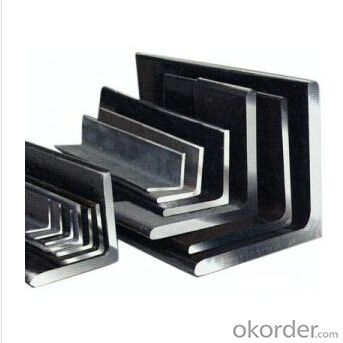
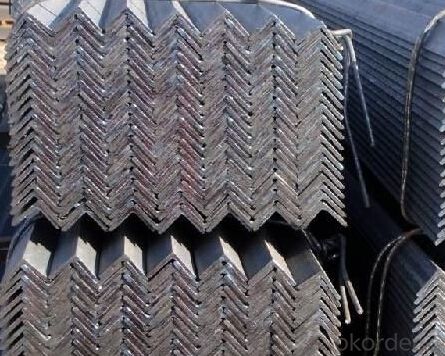
- Q: What are the main factors affecting the cost of special steel?
- The main factors affecting the cost of special steel include the cost of raw materials, such as iron ore and alloying elements, production and manufacturing costs, market demand and competition, transportation and logistics expenses, and global economic factors such as currency exchange rates and trade policies. Additionally, the complexity and uniqueness of the steel's composition and processing requirements can also impact its cost.
- Q: Can special steel be used in the telecommunications industry?
- Yes, special steel can be used in the telecommunications industry. Special steel, such as stainless steel or corrosion-resistant steel, can be utilized for various applications in telecommunications infrastructure, including tower structures, antenna components, cables, and connectors. These types of steel offer high strength, durability, and corrosion resistance, ensuring reliable and long-lasting performance in the telecommunications sector.
- Q: Can special steel be used in the sporting goods manufacturing industry?
- Yes, special steel can be used in the sporting goods manufacturing industry. Special steel, with its unique properties such as high strength, durability, and corrosion resistance, can be utilized for producing various sporting goods like golf clubs, tennis rackets, bike frames, and baseball bats. These steels can enhance performance, improve longevity, and provide better control and accuracy in sports equipment.
- Q: What are the different forging grades of special steel?
- In the market, there exists a variety of forging grades for special steel, each possessing its own distinctive characteristics and applications. Among the most frequently utilized forging grades are: 1. Carbon Steel: Noted for its exceptional strength and durability, carbon steel is a favored option for forging. Its hardness and toughness are determined by the varying levels of carbon present. Carbon steel forgings find widespread usage in the automotive, construction equipment, and machinery industries. 2. Alloy Steel: By incorporating diverse alloying elements, such as manganese, chromium, nickel, or molybdenum, into carbon steel, alloy steel is created. This augmentation enhances its strength, corrosion resistance, and wear resistance. The aerospace, defense, oil and gas, and power generation sectors extensively employ alloy steel forgings. 3. Stainless Steel: Stainless steel, an alloy resistant to corrosion, contains a minimum of 10.5% chromium. It boasts remarkable resistance against rust and staining, rendering it suitable for applications in harsh environments or where hygiene is of utmost importance. Stainless steel forgings are commonly employed in the food processing, chemical, and medical industries. 4. Tool Steel: Tailor-made for utilization in cutting tools, molds, and dies, tool steel exhibits high hardness, wear resistance, and toughness, enabling it to withstand elevated temperatures and heavy loads. Tool steel forgings are utilized in the production of drills, saw blades, punches, and an array of precision tools. 5. High-Speed Steel: High-speed steel, a specific type of tool steel, retains its hardness even when employed at high speeds. It incorporates additional elements such as tungsten, molybdenum, or vanadium, which enhance its resistance to heat and wear. High-speed steel forgings are employed in the production of cutting tools, drills, and milling cutters. 6. Maraging Steel: Maraging steel, a low-carbon, high-nickel steel alloy, is renowned for its extraordinary strength and toughness. Through heat treatment, it achieves high tensile strength while maintaining good ductility. Maraging steel forgings find extensive application in the aerospace, defense, and missile systems industries. These aforementioned examples merely represent a selection of the diverse forging grades of special steel available in the market. Each grade proffers distinct properties tailored to specific applications, ensuring the appropriate material can be chosen to meet desired performance and durability requirements.
- Q: How does special steel contribute to the telecommunications equipment industry?
- Special steel plays a crucial role in the telecommunications equipment industry by providing the necessary strength, durability, and reliability to support the complex infrastructure and advanced technologies involved in this sector. One significant contribution of special steel is its ability to withstand extreme weather conditions and environmental factors. Telecommunications equipment, such as transmission towers, antennas, and satellites, are often exposed to harsh elements like strong winds, heavy rain, and even earthquakes. Special steel, with its high tensile strength and resistance to corrosion, ensures the stability and longevity of the infrastructure, minimizing the risk of damage or failure. Moreover, special steel is employed in the production of various components used in telecommunications equipment. These components include connectors, cables, and electronic enclosures, which require materials with excellent electrical conductivity and heat dissipation properties. Special steel alloys, such as stainless steel or nickel-based alloys, are utilized to meet these requirements, ensuring efficient transmission of signals and preventing overheating issues. In addition, special steel is crucial for the manufacturing of high-quality tools and equipment used in the installation, maintenance, and repair of telecommunications networks. Specialized steel alloys, like tool steel, offer exceptional hardness, toughness, and wear resistance, enabling the production of reliable and long-lasting tools. These tools are essential for professionals working in the telecommunications industry, as they allow them to efficiently and accurately install and maintain the equipment, ensuring uninterrupted connectivity for end-users. Furthermore, as the telecommunications industry continues to evolve, special steel plays a vital role in supporting the deployment of advanced technologies like 5G networks and fiber-optic systems. These technologies require specialized components, such as waveguides, reflectors, and amplifiers, which are often made from special steel alloys to ensure optimal performance and durability. By providing the necessary materials for these cutting-edge technologies, special steel contributes to the expansion and improvement of telecommunications infrastructure worldwide. In conclusion, special steel is indispensable to the telecommunications equipment industry by offering the strength, durability, and reliability required for the infrastructure, components, tools, and advanced technologies involved in this sector. Its unique properties enable the industry to provide efficient and uninterrupted communication services to individuals and businesses globally.
- Q: What are the main characteristics of alloy steel forgings?
- Alloy steel forgings possess several key characteristics that make them highly desirable in various industries. Firstly, alloy steel forgings are known for their exceptional strength and durability. The inclusion of different alloying elements, such as chromium, nickel, molybdenum, and vanadium, enhances the steel's mechanical properties, making it resistant to wear, fatigue, and corrosion. Another important characteristic of alloy steel forgings is their versatility. These forgings can be customized to meet specific requirements, whether it be in terms of shape, size, or performance. This adaptability allows for the production of complex and intricate components that are often used in critical applications, such as aerospace, automotive, and oil and gas industries. Additionally, alloy steel forgings exhibit excellent heat resistance and can withstand extreme temperature fluctuations without losing their structural integrity. This property is particularly beneficial in applications where components are exposed to high temperatures or rapid temperature changes, such as gas turbines, boilers, and heat exchangers. Furthermore, alloy steel forgings offer superior machinability and weldability, making them easier to work with during the manufacturing process. This characteristic allows for precise shaping, forming, and machining of the forgings, enabling manufacturers to achieve intricate designs and tight tolerances. Lastly, alloy steel forgings are known for their cost-effectiveness. Despite their exceptional properties, alloy steel forgings can be produced in large quantities, resulting in economies of scale. This makes them a cost-efficient choice for various industries looking to balance performance, durability, and affordability. In summary, the main characteristics of alloy steel forgings are their exceptional strength, durability, versatility, heat resistance, machinability, weldability, and cost-effectiveness. These qualities make alloy steel forgings a preferred choice for applications requiring high-performance components that can withstand challenging conditions.
- Q: What are the properties of magnetic stainless steel?
- Magnetic stainless steel possesses a unique combination of properties. Firstly, it exhibits good corrosion resistance due to its high chromium content. This makes it resistant to rust and staining, making it suitable for various applications in corrosive environments. Secondly, it retains magnetic properties, allowing it to be attracted to magnets. This characteristic is advantageous in applications where magnetic properties are desired, such as in the manufacturing of magnetic tools or equipment. Additionally, magnetic stainless steel offers excellent strength and durability, making it suitable for use in structural components or appliances.
- Q: How does special steel contribute to sustainability efforts?
- Special steel contributes to sustainability efforts in several ways. Firstly, special steel is known for its durability and longevity. It has a high resistance to corrosion, wear, and tear, which means it can withstand harsh environments and heavy usage. This durability extends the lifespan of products made with special steel, reducing the need for frequent replacements. By minimizing the consumption of resources and reducing waste generation, special steel helps conserve natural resources and minimize environmental impact. Additionally, special steel is highly recyclable. It can be melted down and reprocessed multiple times without losing its properties or quality. This makes it a valuable material in the circular economy, where resources are reused and recycled to reduce dependence on virgin materials. The recycling process for special steel requires less energy compared to producing steel from raw materials, resulting in lower greenhouse gas emissions and energy consumption. Furthermore, special steel is often used in energy-efficient applications. For example, it is used in the production of wind turbines, which generate renewable energy. By providing a material that can withstand the demanding conditions of wind turbines, special steel contributes to the expansion of clean energy sources. This helps reduce reliance on fossil fuels, decrease carbon emissions, and mitigate climate change. Lastly, special steel plays a crucial role in the transportation sector. It is used in the manufacturing of lightweight, fuel-efficient vehicles, such as electric cars. By reducing the weight of vehicles, special steel helps improve fuel efficiency and decrease greenhouse gas emissions. Additionally, special steel is used in the construction of infrastructure for electric vehicle charging stations, supporting the transition to cleaner transportation systems. In conclusion, special steel contributes to sustainability efforts by promoting durability, recyclability, energy efficiency, and clean energy generation. Its properties and applications help conserve resources, reduce waste, and mitigate climate change, making it an important material in creating a more sustainable future.
- Q: What are the different corrosion-resistant grades of special steel?
- Some of the different corrosion-resistant grades of special steel include stainless steel grades such as 304, 316, and 2205, as well as nickel-based alloys like Inconel and Hastelloy. These grades are specifically designed to resist corrosion in various environments and applications.
- Q: How long does special steel last compared to regular steel?
- Special steel generally lasts longer than regular steel due to its superior properties and enhanced durability.
Send your message to us
High Quality Stainless Alloy Bearing Steel
- Loading Port:
- China Main Port
- Payment Terms:
- TT or LC
- Min Order Qty:
- -
- Supply Capability:
- -
OKorder Service Pledge
OKorder Financial Service
Similar products
Hot products
Hot Searches
Related keywords
